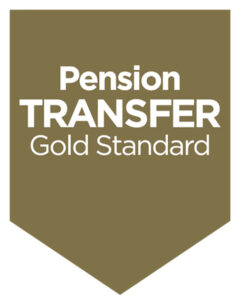
It seems like the Financial Conduct Authority (FCA) is likely to introduce a ban on “so called” contingent charging at some point in the not too distant future. This ban will only apply to advice provided on Defined Benefit pension transfers. The simplistic view of the FCA is that if advisers only get paid to recommend a transfer (the contingent charging arrangement), then it is not in an adviser’s interest not to recommend the transfer, because otherwise they won’t get paid.
What this assumes is that a fully qualified highly regulated financial adviser would recommend a transfer to a client, even if that was clearly the wrong advice for the client’s circumstances just because they will get paid. Wow! That says a lot about our regulators view of financial adviser’s ethics doesn’t it.
So, the FCA’s answer?
Make clients pay for the advice upfront out of their own pocket, even if the advice is (as it will be in many circumstances) not to transfer. If a client doesn’t have £3-5,000 to pay for advice then tough luck, they won’t be able to get advice.
The FCA go on to argue that this should also mean that advice fees should go down. Exactly how they work this out is not fully explained. But, one argument put forwards is that the FCA has seen some “outrageous” fees for advice, citing an example of a £30,000 fee transfer a £900,000 pension. Well, if I can just explain in simple terms to the FCA – that is a 3% fee!!!
For most advice firms who charge percentage fees 3% is pretty standard.
Think about 3% in the context of St James Place’s much criticised 6% exit fee, for example. It’s only half of that!!!
The FCA seems to be totally confused here. If it thinks fees are too high, it should ban percentage charging. We’re all in favour of that – we’ve always charged fixed fees for our work. Our long-held argument has always been the same, why should the client pay a £30,000 fee to transfer their £900,000 pension when their next-door neighbour only has to pay £5,000 (3%) fee to transfer their £150,000 pension. There is no more work needed – it’s just that the value is higher.
We’re in no doubt that the FCA will not change its mind on this, so we expect the following outcomes:
- Clients without say at least £5,000 in ready disposable cash won’t be able to get advice anymore. (on their Defined Benefit pensions)
- Fees for advice on Defined Benefit pension transfers will not decrease, they will increase significantly, because there are less advisers able to provide the advice and less but more wealthy clients able to access the advice.
- Nothing will be done about percentage charging and £30,000 advice fees will continue to be the norm for more affluent clients.
- Defined benefit pension holders will have less access to advice and be priced out of advice leaving them with no ability to tarnsfer or even consider transfer.
- The FCA will pat itself on the back.


















